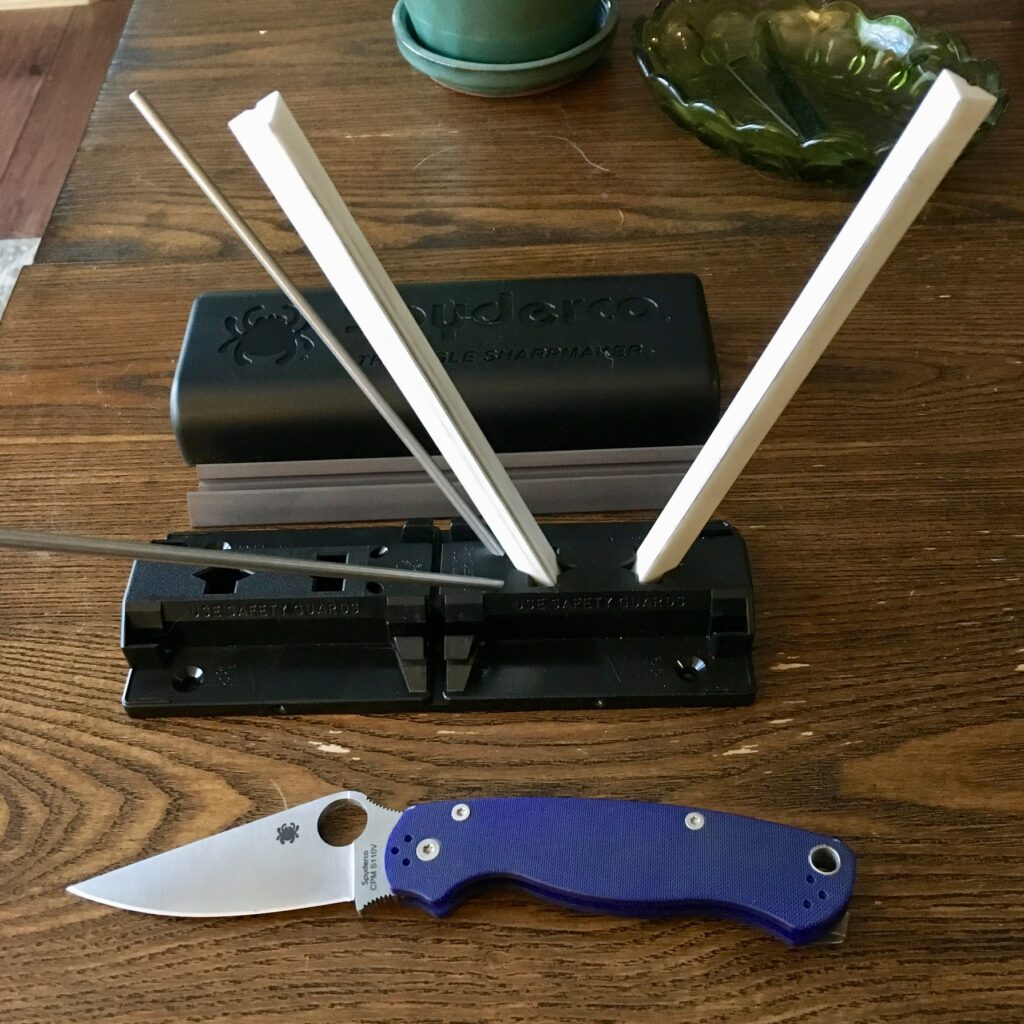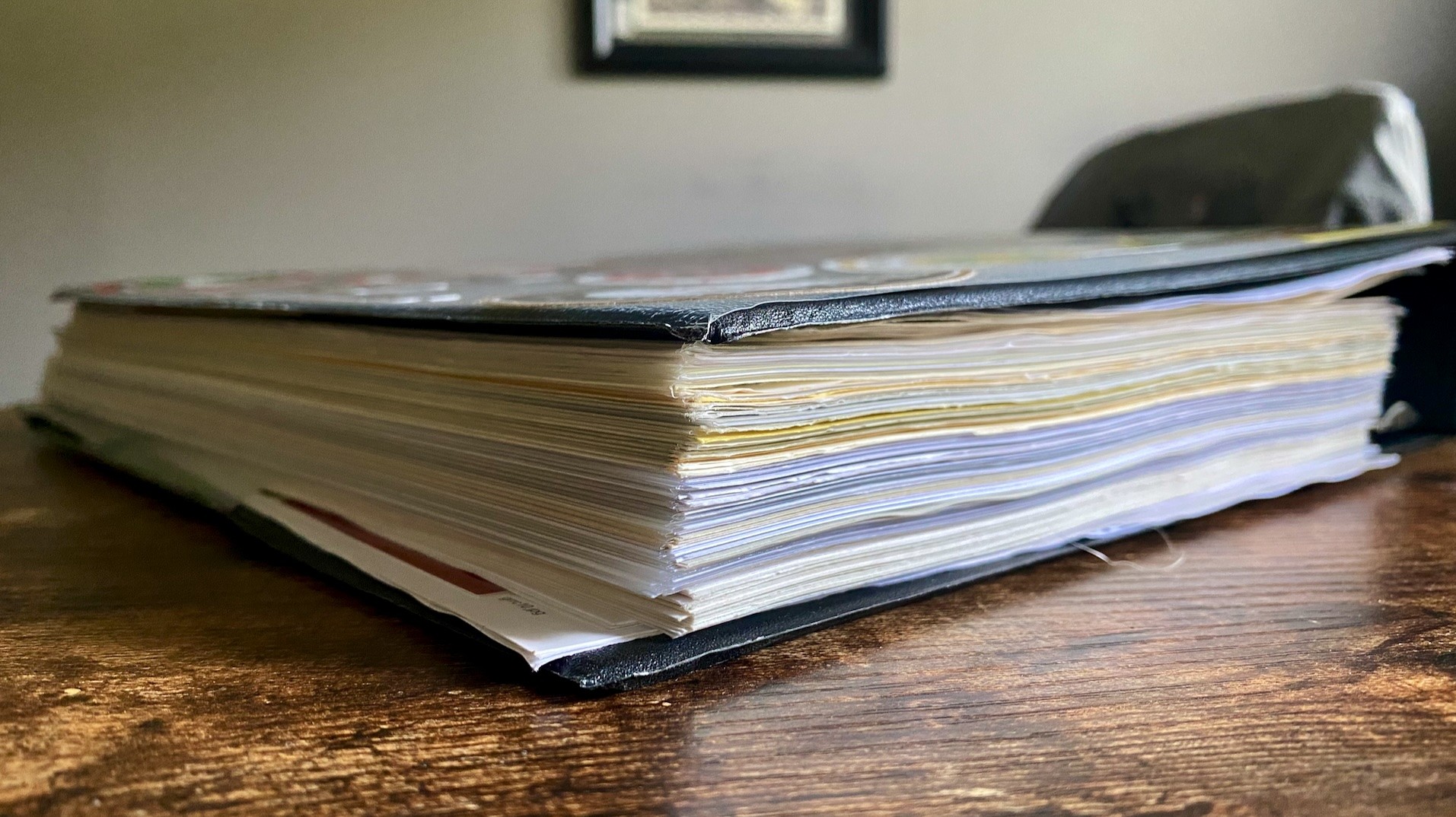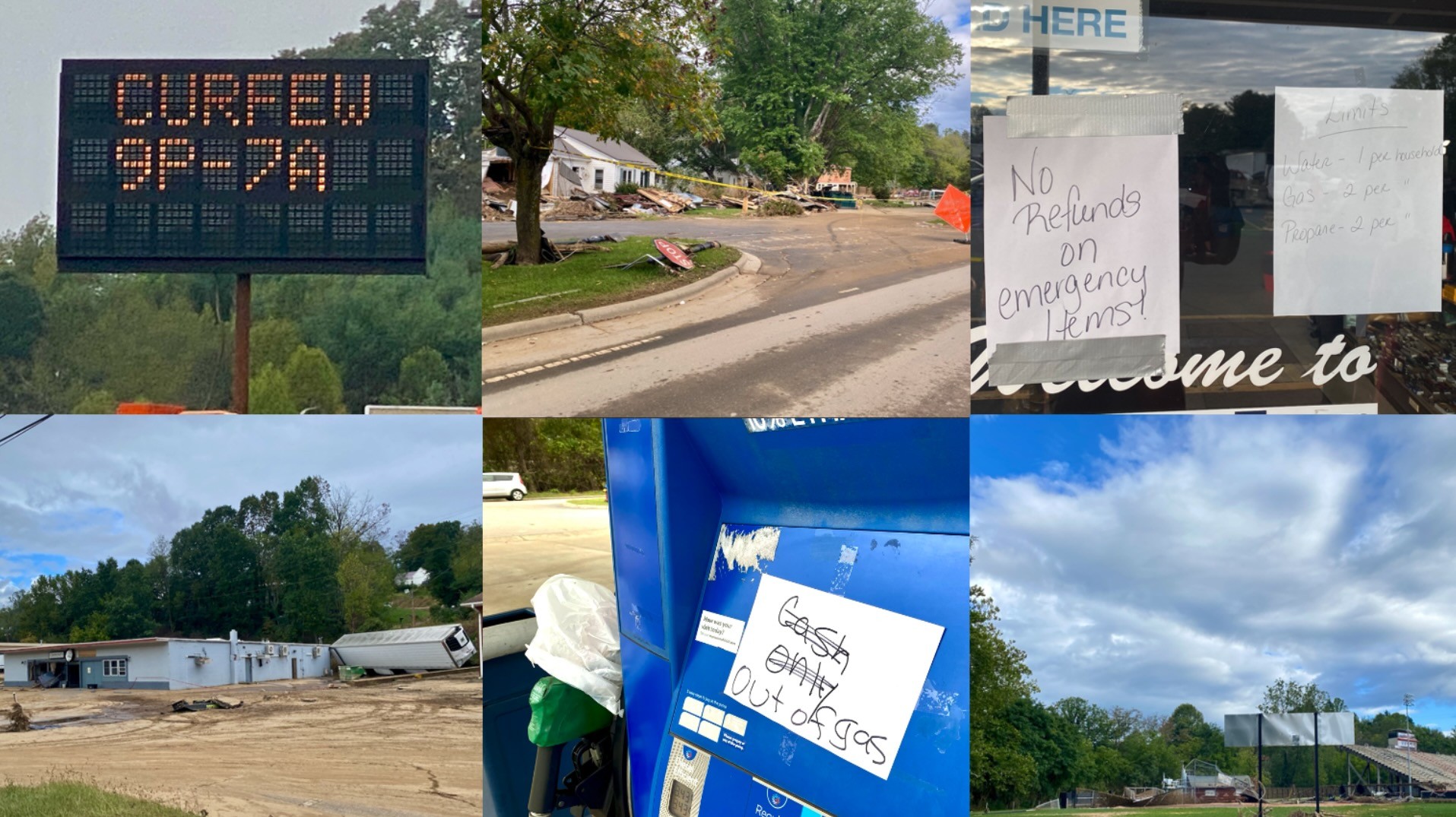I have gotten a ton of good feedback on my last Micro-Preparedness post about staging your clothing. Today’s post is along the same lines, and comes to you courtesy of cutting some firewood.
Backstory
Long story short, this morning I cut up some remnants of a hardwood I took down a couple weeks ago. A lot of the upper limbs were dead and really well seasoned. I hadn’t had time to clean all these little pieces up, but they will get a very hot fire going and lay a good bed of coals. They’re so well-seasoned they sound like glass clinking against each other when stacking them – just beautiful.
I finished cutting and stacking everything, and was about to put my chainsaw away. I realized I had run it quite a bit, so I stopped to fill up the tank (my gas cans are stored under a tarp out by the wood pile, away from the house). I filled the tank up, put the gas can away, and then thought about what I had done. I had prepared the saw to be ready for use the next time I needed it.
Sure, I could have just thrown the saw in the garage and to be honest, there probably wouldn’t have been any harm. The next time I needed it I would have had to fill it up first. There are two problems with that way of doing business. First, it creates friction. That’s one more step I’m going to have to take to get the chainsaw running. That’s one more thing getting in my way, and one more thing creating mental friction on something I should do right now but don’t have to do right now.
The other problem is that I might need my chainsaw in a hurry. The next time I need it might be because there is a fallen tree in my yard. I might be because a tree is threatening my house, or breaching my fence. It might be because we have to un-ass this place in a hurry, and having a chainsaw in the truck, full of gas and bar oil, wouldn’t be a bad thing. Fallen trees and limbs are far from uncommon where I live, but still all of those examples are overall pretty unlikely.
Other Examples
This concept speaks to more than just my chainsaw, though. There are a lot of things that we have the opportunity to prepare for use in the future.
Firearms: I put away my firearms in working order. They are cleaned and lubricated. I know your Glock or my BCM carbine with go for thousands of rounds without cleaning, but it won’t do it better because it’s dirty; it will function in spite of being dirty. I’m a firm believer in keeping my guns clean, after I’ve ascertained they’ll run dirty. If they are firearms that I rely on for self/home defense, some magazines are loaded and ready, as well.
Knives: I recently purchased a Spyderco Sharpmaker and learned to use it. No more putting away (or carrying) dull knives. Knives get sharpened before they get put away, and my EDC knife gets sharpened at least once a week and sometimes more than that depending on how much I’ve used it. My blades are always ready, and there’s another benefit, here, too: they never get super dull, so they sharpen quickly and easily.

Batteries: If you have stuff that takes rechargeable batteries, it makes sense to keep them charged. If you have rechargeable AAs, AAAs, or other batteries, keep them charged, too.
Vehicles: I know lots of people who will wake up – if not tomorrow morning, then one morning this week – with their car running on fumes. They’ll have to leave a little early and white-knuckle it to the first gas station. I prefer to err much more on the side of having fuel; don’t park your car with less than a quarter of a tank in it. If my car has less than half a tank it’s getting filled before we park. Obviously there are exceptions to this rule, but they are truly exceptions.
Pantry: We rarely “run out” of anything around the house. Let me give you an example. Last night we were making stir fry. I asked my girlfriend to grab a new bottle of sesame oil from the basement. She came back with it, handed it to me, and said, “that’s the last one.” Then she wrote “sesame oil” on the list. Now, one bottle will last us for several months, or maybe even a year. We don’t need to buy sesame oil anytime soon, and it could wait. But if we wait, this rarely-used item will likely run out and we won’t think about it until we have a counter full of chopped up veg and meat… Do the right thing and replace NOW.
Wood Heat/Auxiliary Heat
This one is a big example. We recently went on a five-day trip for Thanksgiving. Before we left, I let our fire go completely out. I emptied the stove of ashes, then emptied the ash pan. I brought plenty of kindling to the porch, and replenished our wood on the porch. We were ready to get a fire going the moment we got back home. Think about this on a bigger picture.
I know two people who work at a company that sells and installs wood stoves, and provides other heating services. You know what their busiest day of the year is? The day after the first winter weather event (power outage, ice or snow storm, etc.) of the year. That’s the day their customers decide to have their chimney cleaned or their wood stove serviced. No planning, no forethought, just pure, unadulterated reactivity to adverse events.
As you guys know, I had my stove installed this summer. This coming spring will be the time I have any service to my wood stove done, the time I will clean my chimney, and the time I prepare for winter. My stove will be ready long, long before winter gets here. Firewood is another matter, too – I had two dump truck loads of wood hauled in summer. All that wood was green which means it won’t be worth much this year – I’m already thinking ahead to next year’s supply and you should be, too.
Principles
I’ve thrown a few examples at you, but I’d rather you think for yourself on this one. There is massive opportunity to do so. I’ll leave you with just a few principles:
– If it needs to be filled, fill it.
– If it needs to be emptied, clean it out.
– If it needs replacement, replace it.
– If it needs repair or maintenance, repair or maintain it.
It’s really that simple.





